Bachelor of Science [B.S] (Archaeology and Anthropology)
Field of Study:
₹17.1 L/Yr
Tuition Fees
| Year | 1st Year Fees |
|---|---|
| Tuition Fees | ₹1707391 (GBP 14900) |
The Architecture and Urban Design programme at the University of Cambridge is a hybrid of independent research through design and a structured technical learning resource. It is designed for mature students that join the program with a distinct area of interest and provides guidelines to theirÊ research, access to specialists of various fields relevant to their studies, and a matrix of deliverables that foster an informed body of work underpinned by a sophisticated set of design and presentation techniques.
The main outcome is a design thesis consisting of a detailed design proposition, supported by a written argument of up to 15,000 words. This is preceded by four essaysÊof Ê3,000Ð5,000 words or equivalent design submissions. The course is closely connected with research interests within the DepartmentÕs Martin Centre for Architectural and Urban Studies.Ê A number of the academics and researchers teach and supervise on the course.
This is a course that enables each student to identify a unique thesis topic and to test the possibilities of using a set of design proposals as a research methodology. This course provides a platform for bringing together the research interests in Cambridge with its studio objectives. The means by which this happens is continually evolving and places the debate about the relationship between research and design at the centre of the school. Each project is an individual exploration of contemporary issues in the built environment consolidating months of research, discussion and interdisciplinary collaboration in a design proposal.
The course is structured in two parts: the residential period dedicated to the intensive study of the cultural, theoretical, and technical factors shaping each thesis topic, explored through a rigorous set of design tests and culminating in a full written thesis and project portfolio; and the second, a fieldwork period (after two terms of study) in which the implications of outline proposals are examined on site, or within a professional context. These components provide an opportunity to explore distinct design approaches in various settings, while offering a sound framework to pursue meaningful research.
Structure
The course is structured by two terms focusing on design and detailed analysis (residence in Cambridge), an interim fieldwork period (elsewhere) supporting the research thesis, and a third term focusing on project development (residence in Cambridge). These complementary term components, together with the fieldwork period, provide an opportunity to explore distinct interests within various settings, while offering a sound framework to pursue meaningful research.
Candidates are free to choose a geographic area or region of their interest that frames their study throughout the programme. ÊFollowing an initial familiarisation with their chosen specific locality and a global assessment of the given environment at hand, students are expected to identify a technical or architectural issue that is indigenous or characteristic to the area or region of interest and holds potential to develop.ÊÊ
The focus shall be primarily with issues of contemporary construction, not excluding the consideration of historical or traditional building methods that are still prevalent. More generally, candidates develop an understanding of the complexity of environments and their various aspects being inseparable from, and integrated with, each other. More importantly, however, students will develop highly particular areas of expertise that they may draw on for the remainder of the course.
Learning Outcomes
The course provides an opportunity to explore distinct interests within various settings, while offering a sound framework to pursue meaningful research. It delivers intensive teaching in the qualitative and quantitative aspects of architecture and urbanism, in parallel with supervised design development, case study analysis, and essays in cultural and technical aspects of the subject.
During the fieldwork period, students will have engaged in a rigorous research exercise and produced a well-resolved and argued design at strategic, building and detail design scales.
Contemporary issues in architectural research and its relationship to practice, relating to the thesis topic is captured in a "project implementation" essay submitted at the end of the fieldwork period.
TOP Scholarships
| Scholarship name | Award amount | Eligibility |
|---|---|---|
| - | - | - |
| - | - | - |
| - | - | - |
Key Resources for Your Study Abroad Journey
Scholarship Grants & Financial Aids
| Name | Scholarship Per Student | Level of Study | Type | |
|---|---|---|---|---|
| Debesh Kamal Scholarship | Scholarship per student₹ 1.6 L/Yr$1,385 | Level Of StudyBachelor | TypeMerit-Based |
Similar Colleges
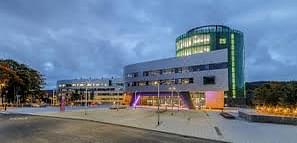

Robert Gordon University


University of Aberdeen
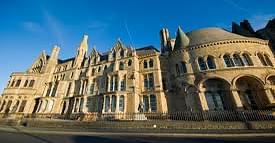

Aberystwyth University
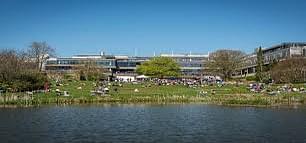

University of Bath
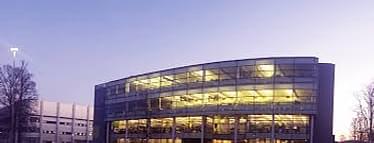

Cranfield University
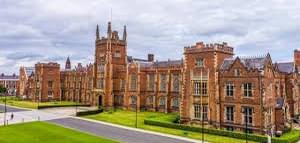

Queen's University Belfast
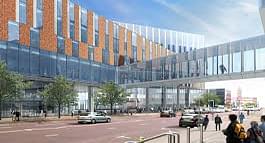

Ulster University
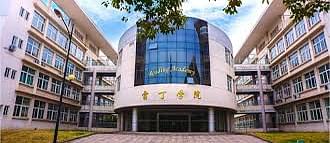

University of Reading
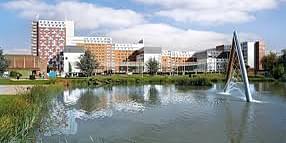

























Comments